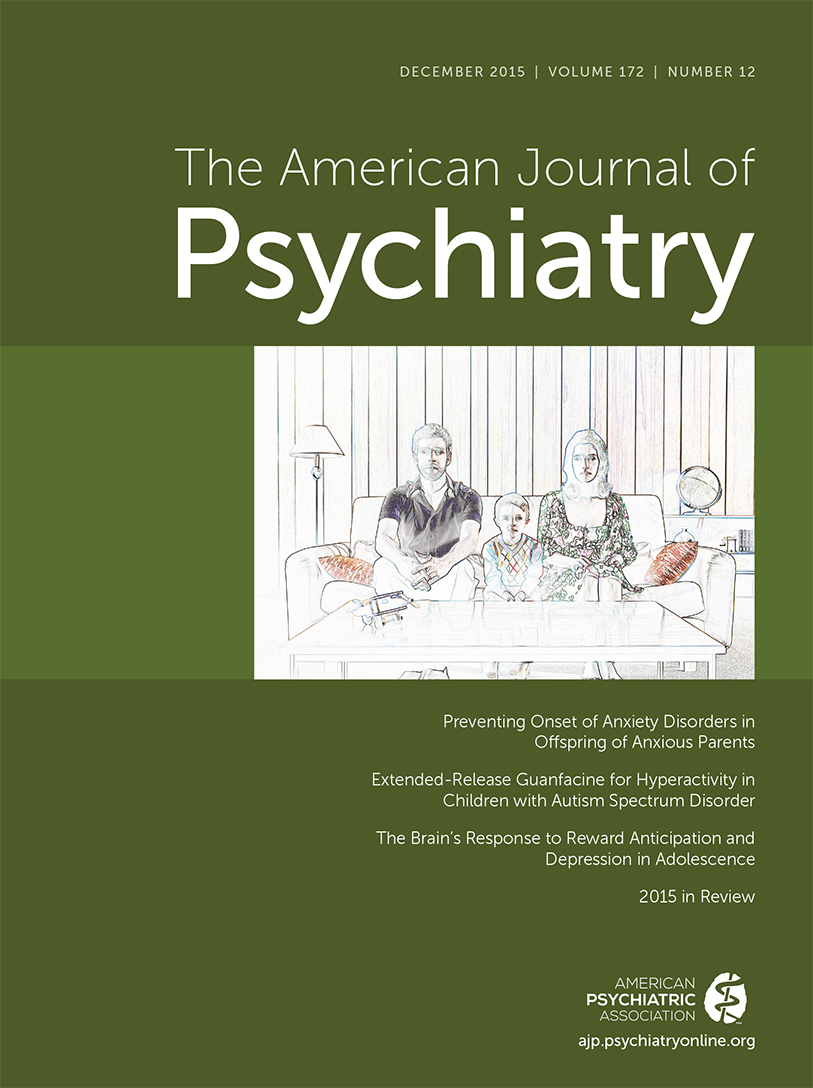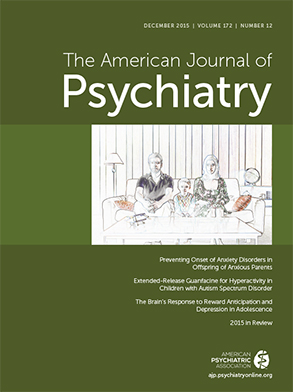T
o the E
ditor: This letter reports an interesting attempt to extend our finding reported in our study (
1) on the prediction of working memory performance by the ratio of clozapine to
N-desmethylclozapine (NDMC) among mildly ill and stable patients with schizophrenia to a sample of markedly to severely ill patients who are not responsive to clozapine. The authors report that clozapine/NDMC was a weak and nonsignificant contributor to working memory performance in this sample. Several differences between these two studies, some of them mentioned by the authors, could have contributed to the differences in the results.
The first is the major difference between the levels of symptomatology in the two samples. Patients who are experiencing severe psychotic symptoms and behaviors are more likely to have their cognition affected by the severity of these symptoms. The symptoms and behaviors are likely to distract patients from performing a cognitive task and to override any procognitive effect of factors such as the levels of NDMC and related ratios.
Second, and related to the point above, a patient who is resistant to the effect of clozapine on psychotic symptoms is likely to be resistant to the effect of clozapine, and in this case its metabolite NDMC, on cognition. In other words, the same mechanisms that are mediating resistance with respect to psychotic symptoms could be mediating resistance with respect to cognition. This point questions the conceptual validity of attempting to extend our finding to a clozapine-resistant population.
Third, and as indicated in the original article that reported on this sample (
2), patients were allowed to be administered lorazepam (up to 6 mg/day) or chloral hydrate (up to 2 mg/day) for agitation and up to 48 hours prior to cognitive testing. The detrimental effect of these two medications and their withdrawal effect on cognition could also have confounded cognitive performance, especially on cognitive tasks that are highly dependent on attention, such as working memory tasks.
Fourth, based on their original study, it appears that the mean clozapine dosage was about 140 mg higher than the mean clozapine dosage in our study. High clozapine dosages result in high clozapine concentrations, which are likely to saturate the
N-desmethylation process (
3) and, consequently, to override the partial agonism of NDMC and its procognitive effects. Such saturation could make the ratio a weak predictor of cognition facing the high anticholinergic burden and related delirium-like state that could be induced by high clozapine concentrations.
Finally, the authors report that in the original study, when the clozapine-resistant patients were randomized to receive risperidone as an add-on to clozapine, they experienced “deterioration” in working memory. However, it is important to note that what was reported in the original study is that after 8 weeks of taking risperidone or placebo, there was no difference in working memory. What was significantly different between the two groups was the change between 8-week assessment and baseline assessment: patients randomized to receive risperidone seemed to experience mild deterioration, and those randomized to receive placebo experienced mild improvement, raising the question of whether this reflected a regression to the mean. Further, the cognitive outcome in the original study was a secondary outcome measure, and the significance would not have survived a correction for multiple comparisons, raising doubts whether this was a true cognitive effect of risperidone. Still, even if working memory changed in response to risperidone as a side effect in this clozapine-resistant sample, one cannot deduce that working memory should then positively change in response to NDMC and therefore the ratio, given the resistance and the other confounders described above.
In conclusion, this is an interesting attempt to extend our finding to a clozapine-resistant population. Notwithstanding that the attempt is conceptually problematic and methodologically confounded, it points to the challenge of treating clozapine-resistant patients with schizophrenia, with respect not only to psychotic symptoms but also to cognitive deficits.

